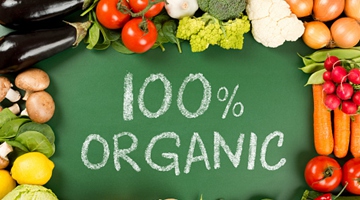The competition in the industry of fresh food e-commerce has become a game between giants, and the core of the competition is very clear, which is the supply chain and user experience. On August 3, Tmall announced a US$300 million investment in Yiguo. This is also Alibaba's additional investment after leading Yiguo's Series C financing in March last year. Yiguo said that this round of investment will help the company expand the development of Anxianda's business and supply chain more quickly, and will further integrate into the Tmall ecosystem.

Tmall invests in Yiguo again and increases investment in cold chain logistics
The funds raised by Yiguo will be mainly used for the infrastructure construction of its cold chain logistics platform Anxianda. Zhang Ye, Chairman and CEO of Yiguo Group, believes that after this round of financing, Yiguo Fresh will further integrate into the Tmall ecosystem, and will develop and strengthen Anxianda and the supply chain more quickly, and build a composite logistics supply chain system that is "born for China's fresh food industry". At the same time, the resource integration of both parties on the business side will accelerate the efficiency of this system construction.
At the same time, Yiguo said that with the completion of Yiguo's Series D financing, the replication of cold chain capabilities across the country will be a key area for corporate investment. This includes building warehouses at the source of fresh food production, bringing the capabilities of cold chain logistics and safety and quality inspection to rural areas, promoting the standardization of agricultural products at the source, and realizing "fresh direct supply of origin" and so on. It is estimated that by 2020, Anxianda plans to deploy 56 warehouses in its production area.
It is understood that this is the third round of Yiguo financing that Alibaba and Tmall have participated in. As early as 2014, Yiguo received a Series B financing jointly invested by Alibaba and Yunfeng Capital. In March last year, Alibaba also led the C round of Yiguo's financing, which subsequently led Suning's C+ round of financing for Yiguo.
Jing Jie, vice president of Alibaba Group, said that with the joint efforts of Tmall and Yiguo Fresh, the supply chain capabilities of both sides in the fresh food field have been greatly improved. On the one hand, ingredients from 147 countries including the United States, Argentina, Norway gather together in Tmall; on the other hand, special products such as Xuyi crayfish, Shandong Meizao Big Cherry, and Bachuliu Melon have also been sold nationwide through Tmall. With the integration of Yiguo and Tmall, Anxianda will provide better cold chain logistics services to fresh food merchants on the Tmall platform.
Empower suppliers and service competition is soaring
Fresh food e-commerce has now been regarded as a "hard bone" since its initial entrepreneurial blue ocean. The reason is not only that companies need to continue to invest when attracting new customers during the start-up period, but also need to deal with the high costs required for infrastructure such as cold chain logistics. According to the "2016 China Online Retail Market Data Monitoring Report" released by the China E-Commerce Research Center, the overall transaction volume of domestic fresh food e-commerce in 2016 was approximately 91.3 billion yuan, an increase of 80% year-on-year from 2015, and the overall market size in 2017 could reach 150 billion yuan. However, due to the high costs and the imperfect supporting cold chain logistics system, more than 4,000 fresh food e-commerce companies made only 1% profit, 88% lost money, and the rest were barely tied.
Previously, fresh food e-commerce platforms left the market without suffering the pressure of losses. Delicious Qiqi, Xu Xian and others have successively been on the "fresh food death list". After several market reshuffles, we can notice that the current fresh food e-commerce players are no longer limited to creating single hot products, but are focusing more on infrastructure services. As for Yiguo, which received Tmall's capital increase this time, increasing investment in cold chain logistics is an inevitable choice under the trend of market competition and consumption upgrading. Yiguo said, " The threshold for fresh food e-commerce is already very high, and the shipping tickets have been distributed. The next focus is to make good use of cold chain logistics network layout, optimize the experience, and open up the platform's capabilities to the entire industry."
Not only is the combination of Tmall and Yiguo, which is increasing its investment capabilities, JD.com’s subsidiary JD.com also regards the “empowerment” strategy as the only way for the development of fresh food e-commerce nowadays. In April this year, JD.com released the "retail empowerment" strategy, stating that it will help traditional retail stores complete the Internet transformation and upgrading from three levels of traffic, efficiency and user operations. Dada-JDD CEO Kuai Jiaqi said that to achieve Internet upgrades, supermarkets must first face the "three no" problems of no basic users, no delivery team, and no online marketing tools, and this is the value of JDDDDDD.
Wang Wei, founder of Tiantian Orchard, also said that in the fresh food e-commerce industry, it is not feasible to start a business in the "Internet + Fresh Food" path, and the "fresh food + Internet" model can win the future. Fresh retail’s attitude towards the Internet should be regarded as a tool to optimize goods and services, rather than as a business model.
The pattern is gradually emerging, and differentiated chess game is difficult to spread
If you count the current fresh food e-commerce landscape, the two poles are the Alibaba-based team formed by "Tmall + Yiguo + Hema", and the JD-based team formed by JD Supermarket, JD-D Home and Tiantian Orchard invested by JD.com. In addition, there are heavyweight players with financial strength and background such as Benlai Life, COFCO Womai.com, SF Express, and entrepreneurial players such as MissFresh and U Shopkeeper. As the scale of capital injection gradually increases, most fresh food e-commerce companies have already had a clearer path for future development, but it is becoming increasingly difficult to find differences that are difficult to copy by others.
In July this year, the ban on American beef was lifted, and Yiguo, COFCO Womai.com, Tiantian Orchard and others were introduced as soon as possible. In addition, the era when Tmall Supermarket exclusively introduced American Renee Yellow Cherries and the first Australian chocolate orange in Tiantian Orchard was released, is gone forever.
In terms of attempting innovative business, Benlai Life’s offline store opened in Chengdu a few days ago because it is positioned as a "refrigerator + kitchen" for the family and provides consumers with a diverse experience of "retail + light food + social", which also makes the industry regard it as a new retail test for Benlai Life’s benchmark against Hema Fresh. MissFresh, which has received three rounds of investment in succession, has been widely recognized in the Beijing market with its fast delivery services and is now vigorously advancing to southern cities. In the fresh food O2O track, we also face the challenge of competing with giant players such as Hema Fresh and JD.com.
Click to register to apply for the qualification to attend the Laogao e-commerce classroom. Laogao strongly invites e-commerce veterans to teach everyone step by step, increase their popularity and create a hot product, and occupy the first place in the category !




![#Laogao E-commerce Newsletter# [July 2 E-commerce Morning News]](/update/1519779573l517616211.jpg)
![#Laogao E-commerce Newsletter# [March 3 E-commerce Morning News]](/update/1614754376l193744299.jpg)

 EN
EN CN
CN
